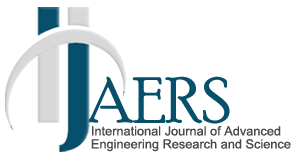Speedy and Effective Dispute Resolution through Virtual Mediation as an Environmental Protection Tool |
| ( Vol-8,Issue-3,March 2021 ) OPEN ACCESS |
| Author(s): |
Fátima Clotilde Alves de Abreu Galvão, Eduardo Antonio Maia Lins, Luiz Filipe Alves Cordeiro, Daniele de Castro Pessoa de Melo, Martorelli Dantas da Silva |
| Keywords: |
|
Virtual Mediation, Paper, Environmental Preservation. |
| Abstract: |
|
Natural resources are renewable, however, they need time to recover, being essential to guarantee a healthy environment, for the benefit of future generations, attitudes of preservation and non-degradation of the environment. The carbon dioxide emitted by vehicle engines was a major cause of global warming of the earth. This work will show environmental impacts caused by the emission of gases from the burning of fuel and the unnecessary use of paper by the Court of Justice of Pernambuco. The theme has great relevance in view of the pressing need for everyone's contribution to sustainability, and the Judiciary Branch must demonstrate its collaboration through sustainable practices, within new paradigms, to minimize the impacts that some of its activities cause to the environment. In view of this, the main objective here is to demonstrate how the disuse of paper and the use of electronic means in mediation sessions at the Center for the Resolution of Conflicts and Citizenship in Recife, will contribute to the reduction of carbon dioxide in the atmosphere due to the mitigation of deforestation. This work was carried out in the Municipality of Recife, based on a case study developed at the Rodolfo Aureliano Forum, in a specified way, at Cejusc - Recife. To this end, semi-structured interviews and questionnaires were carried out, as well as bibliographic research, with the methodology used being mixed (qualitative / quantitative) and exploratory; the case being understood in accordance with the Sustainable Logistics Plan indicated by the National Council of Justice and the Sustainable Logistics Plan itself of the Pernambuco Court of Justice. Depending on the exposure in the discussions of this work, it is important to highlight one of the main results found in this case, considering that in 2019 64,020 new processes were distributed (TJPE), if they were resolved by virtual mediation, 1,707.2 (one thousand , seven hundred and seven point two) eucalyptus trees, which means that an average of 150 (one hundred and fifty) tons of carbon dioxide would be sequestered from the atmosphere, thus making it possible to verify the environmental gain, as well as the economic and social gain , in a win-win process, where the courts, the Court itself, as well as the whole society win, with the speed, effectiveness and sustainability presented by the approached system. |
| Article Info: |
|
Received: 09 Dec 2020; Received in revised form: 03 Feb 2021; Accepted: 26 Feb 2021; Available online: 06 Mar 2021 |
|
|
| Paper Statistics: |
| Cite this Article: |
| Click here to get all Styles of Citation using DOI of the article. |
- Track Your Paper
- editor.ijaers@gmail.com
- ISSN : 2349-6495(P) | 2456-1908(O)



Advanced Engineering Research and Science